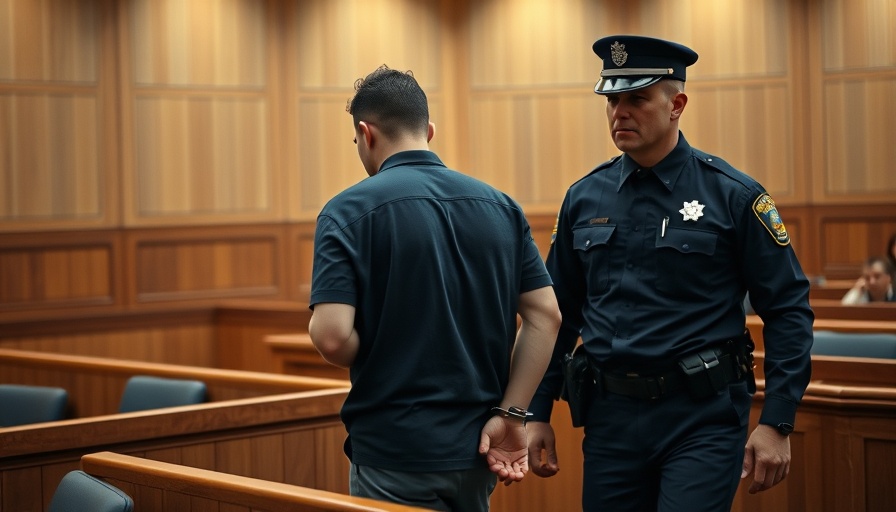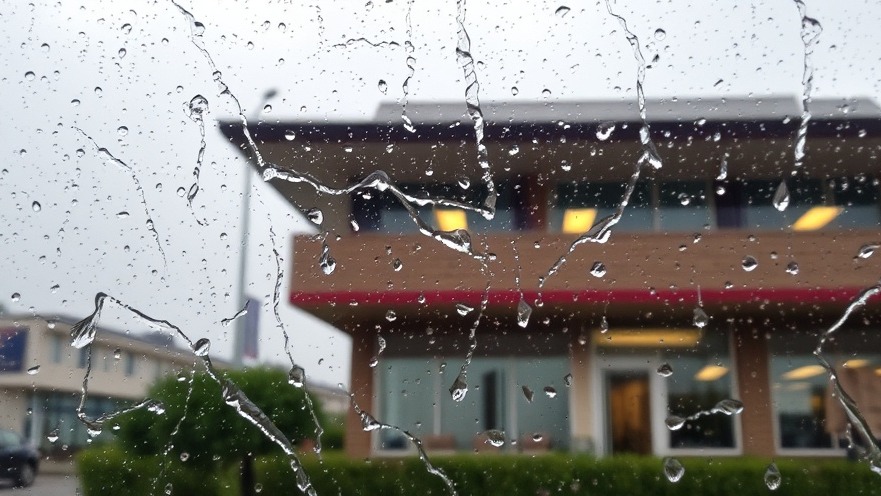
Understanding the Context: A Troubling Situation in San Antonio
The recent custody hearing for a 13-year-old boy accused of planning a mass attack at Rhodes Middle School has drawn significant attention in the San Antonio community. The judge’s ruling to deny his grandmother custody sheds light on complex issues surrounding youth, abuse, and public safety. While the boy’s grandmother believes he was manipulated by his mother, Ashley Pardo, who also faces charges, the court's decision may point toward a larger question regarding the responsibility of guardians and the role of the judicial system in protecting vulnerable children.
A Closer Look at the Charges: From Terrorism to Weapons Possession
The teen's case began when he was arrested for allegedly arriving at school dressed inappropriately, leading to initial terrorism charges. However, the Bexar County District Attorney's Office later reduced the charges to possession of a prohibited weapon. The change in charges raises eyebrows about the prosecution's handling and the underlying circumstances that led to the boy's behavior. With previous incidents of alleged arson connected to the teenager, it begs the question: what systemic factors contribute to such troubling behavior?
The Role of Family Dynamics in Criminal Behavior
It cannot be understated that family environments play a pivotal role in youth behavior. In this case, the grandmother's claim of abuse by the boy's mother presents a stark illustration of potentially damaging home dynamics. Current psychological research highlights how trauma in childhood can have lasting impacts on behavior and decision-making. As the case unfolds, it will be crucial for mental health professionals to assess the boy’s background and current state to provide supportive measures that could steer him away from a path of further violence.
Public Safety Concerns: School Security and Community Response
The surrounding community has reacted with a mix of fear and concern over the events at Rhodes Middle School. Local authorities have been pressed to ensure that children remain safe in educational settings, leading to increased discussions regarding school safety measures and the mental health resources available for students. Interviews with local parents reveal a heightened awareness of their children's safety and the need for active involvement in school security policies.
Rethinking Juvenile Justice: Implications for the Future
As this case moves forward, it raises questions about the juvenile justice system's effectiveness. The goal of rehabilitation versus punishment will be pivotal in guiding decisions regarding the teen’s future. Advocates for reform argue that early intervention and support can lead to better outcomes for youth in similar situations. For many San Antonio residents, understanding how the juvenile justice system works—and its potential for positive impact—remains imperative.
Community Involvement: A Call to Action
In light of this situation, community engagement becomes vital. Advocacy for increased mental health resources, as well as educational programs that address behavior and safety, can serve to better equip not only schools but families facing similar challenges. Local organizations can rally support for initiatives aimed at helping children understand conflict resolution and the significance of mental well-being.
Conclusion: The Path Forward for Families and Communities
This troubling case underscores the complex interplay between youth behavior and familial situations. As San Antonio grapples with the implications of potential violence in schools, a collective effort will be necessary to ensure the safety and support of all children in the community. Active participation in discussions about mental health resources and educational reform can lead to a better future for families like the one involved in this case. Stay informed, and voice your support for enhancing community outreach and preventive education. Your involvement can make a difference.
 Add Element
Add Element  Add Row
Add Row 



Write A Comment